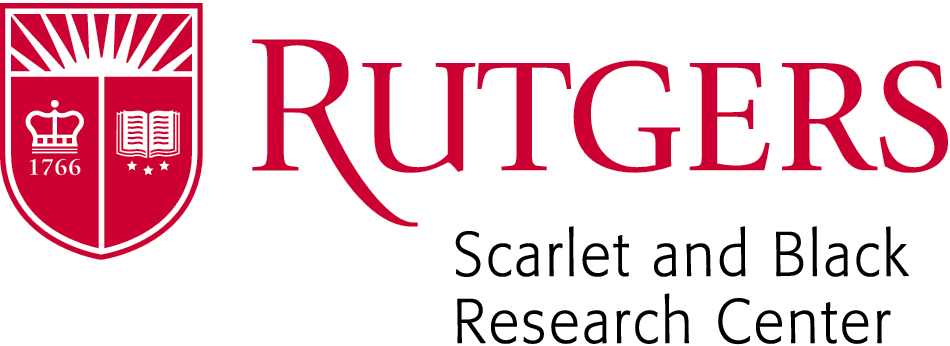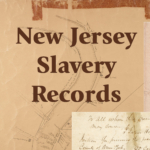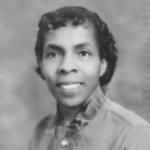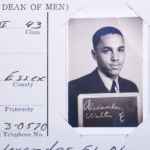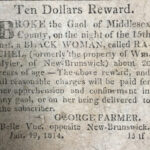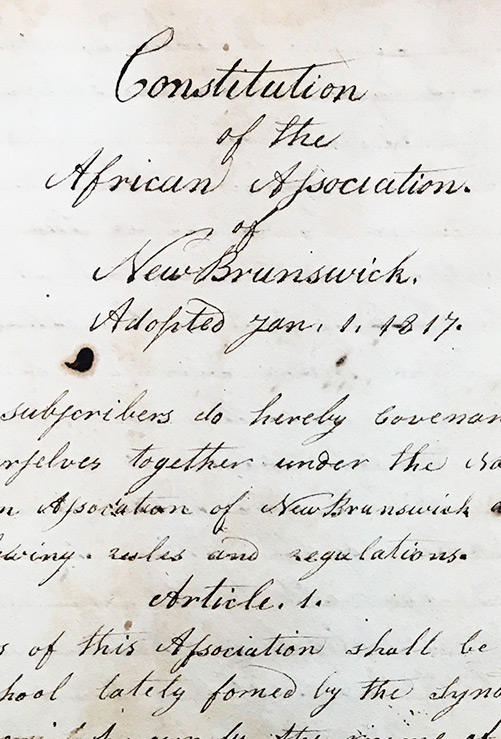

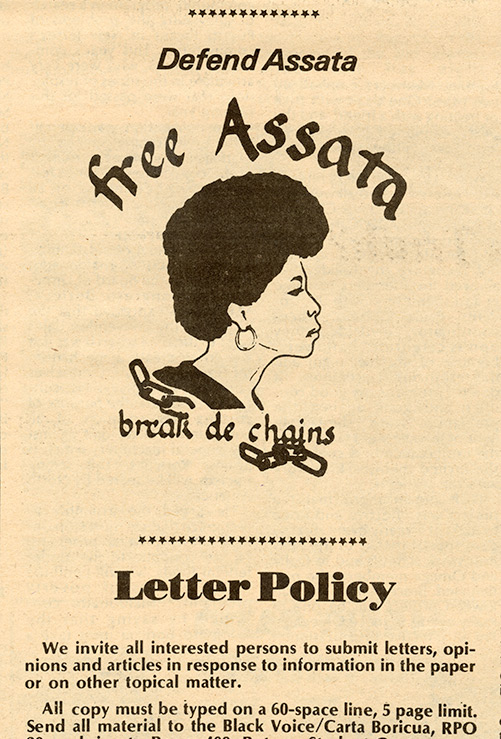
Led by digital archivist Jesse Bayker, a team of graduate and undergraduate students at the Scarlet and Black Research Center contribute to digital humanities projects that focus on African American history in New Jersey.
Learn more about our signature projects below:
- New Jersey Slavery Records
- Scarlet and Black Digital Archive
- Black Voices at Rutgers
- Collection Highlights
New Jersey Slavery Records
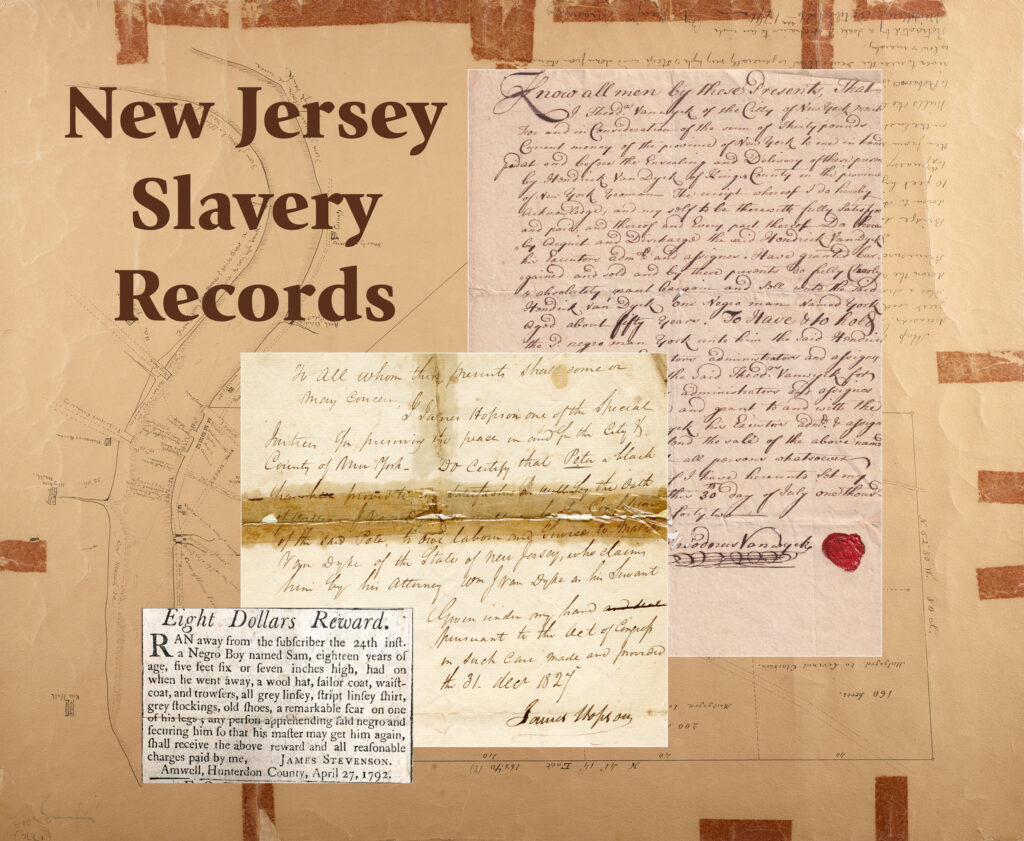
Launched in September 2022, the New Jersey Slavery Records database is our newest digital humanities project. This website aims to document the history of slavery in our communities through digital archival sources and linked open data. Hundreds of names and events have been added to the database, and our team is working to index thousands more records so that we can grow this website into an indispensable tool for researching slavery in New Jersey.
We developed this database in collaboration with On These Grounds: Slavery and the University, a cross-institutional digital initiative funded by the Mellon Foundation.
Scarlet and Black Digital Archive
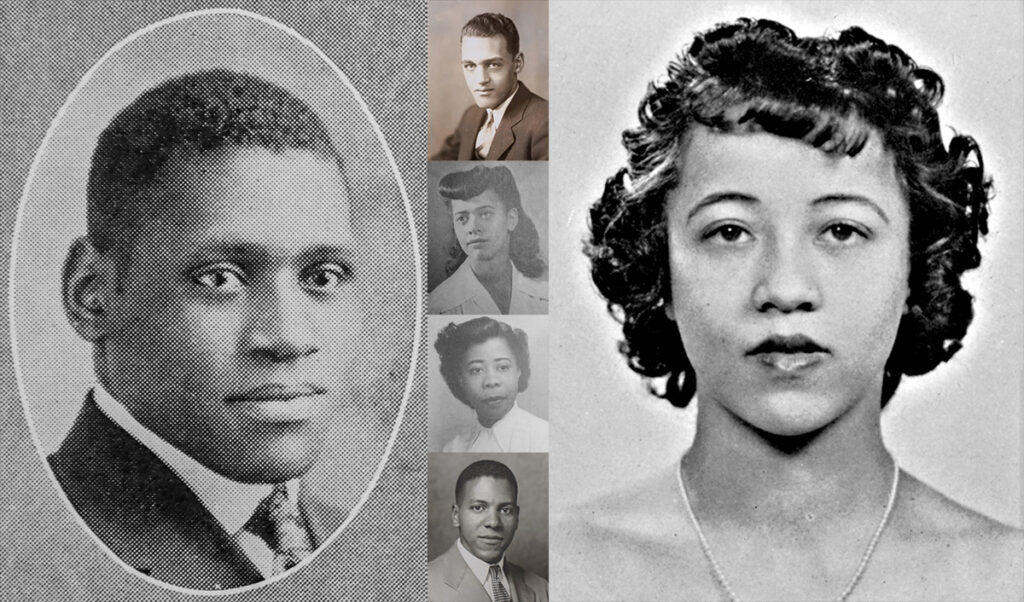
The Scarlet and Black Digital Archive is a publicly accessible educational resource that features primary sources documenting African American history at Rutgers University and in our surrounding communities.
The digital archive sheds light on the history of slavery and dispossession and serves as a companion to the three Scarlet and Black books, which trace the history of race at Rutgers from slavery to Black Lives Matter. We have digitized a wide range of historical documents to make them accessible to scholars and educators for research and teaching.
Our digital collections illuminate the history of Rutgers and slavery through primary sources such as runaway ads, account books, and slave sale receipts that document how university leaders and campus namesakes enslaved Black people in the eighteenth and nineteenth centuries.
Our exhibits highlight the experiences of the first African American students at Rutgers university in the early twentieth century, including alumni of Rutgers College and alumnae of Douglass College (previously the New Jersey College for Women). A collection of cartoons from the student magazine Chanticleer shows the racist imagery that awaited African Americans on campus in the 1920s. Collections related to our third book highlight the black student protest movement in Camden and anti-apartheid activism in New Brunswick.
We also explore local black history in digital exhibits about the New Brunswick NAACP’s anti-lynching campaign and the rise of the KKK in New Brunswick in the 1920s. Additionally, we have partnered with the Mount Zion AME Church (the oldest African American institution in New Brunswick) to digitize records from the Alice Jennings Archibald History Library and make them available to the community as part of our digital archive.
Black Voices at Rutgers

Black Voices at Rutgers is a portal that helps researchers discover African American oral history interviews with a focus on Rutgers and life in New Jersey.
This project dovetails with our ongoing effort to record oral histories with African American alumni and local residents of the communities surrounding our campuses. We are currently conducting interviews through the Black Camden Oral History Project, led by Dr. Kendra Boyd at Rutgers–Camden, with help from our colleagues at the Rutgers Oral History Archives.
Collection Highlights
- Launching the New Jersey Slavery Records DatabaseThe Scarlet and Black Research Center is proud to announce the launch of our new database New Jersey Slavery Records. This website aims to document the history of slavery in our… Read more: Launching the New Jersey Slavery Records Database
- New collection: Alice Jennings Archibald History Library RecordsThe Scarlet and Black Project is excited to announce the publication of a new digital collection: Alice Jennings Archibald History Library Records (Mount Zion AME Church of New Brunswick). This… Read more: New collection: Alice Jennings Archibald History Library Records
- New exhibit: Rutgers African American Alumni GalleryWe are thrilled to present our new digital exhibit Rutgers African American Alumni Gallery: The Forerunner Generation, by Beatrice J. Adams and Jesse Bayker. This exhibit brings together photographs and… Read more: New exhibit: Rutgers African American Alumni Gallery
- Collection: Slavery Era Newspaper ClippingsWe are excited to announce a new collection: Slavery Era Newspaper Clippings. This collection consists of New Jersey newspaper clippings from the late eighteenth and early nineteenth century, including runaway… Read more: Collection: Slavery Era Newspaper Clippings
- New exhibit: Campus NamesakesA group of undergraduate students in Jesse Bayker’s Digital History course collaborated to create Campus Namesakes, a new digital exhibit for the Scarlet and Black Project. This exhibit features the… Read more: New exhibit: Campus Namesakes
